In September 2018, YANG Fan from CECP (China Endangered Culture Protectors) and Silvan Hagenbrock, urbanist and editor of CITYMAKERS, travelled together for 10 days from Xi’an to Taiyuan tracing cultural relics sites. Why go to all these places?
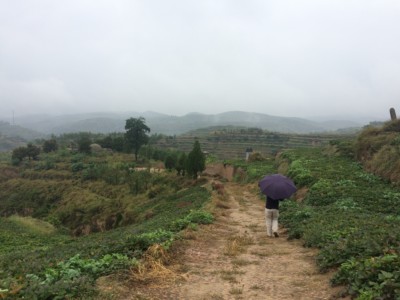
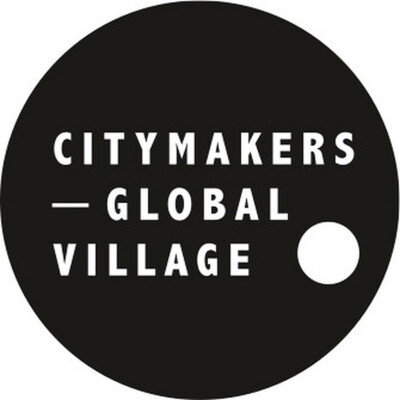
From Dialogue to Action: Between September 2017 and spring 2018 CITYMAKERS China – Germany supported the realisation of selected project ideas in the context of liveable city making. One of the supported focus groups worked on the larger theme of “cultural memory, heritage and identity” and their research work resulted into the “Wuhan Narrative” project. Read below more about the CITYMAKERS’- incubator ‘Wuhan Narrative’ and the expert team behind.
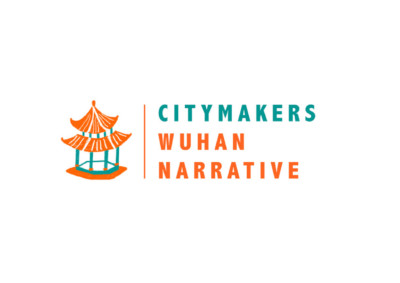
CITYMAKERS Culture and Identity Focus Group
The Wuhan Narrative Focus Group (formerly ‘Incubator’) hopes to produce and reactivate discourses about the value of cultural heritage in today’s society and urban context as it considers heritage architecture to be an important part of a city’s cultural heritage and general urban identity.
WHY
Like all Chinese cities, Wuhan is undergoing a dynamic process of urbanization in which many historic sites are being radically altered or disappearing altogether. The few surviving German places of remembrance offer an opportunity to define a critical framework of discourse that encourages the preservation and analysis of historical memories. A city also reveals itself through the complexity and inconsistency of its develop- ment, which can establish itself in its productive discourse as a generator of an urban identity.
WHAT
The Wuhan narrative culture and identity incubator team acts on the assumption that culture is at the heart of the liveable city and expresses the state of social, civil and urban development. It also represents the contemporary and historic values of a society. Cultural heritage is part of a city’s identity and contains“cultural narratives”that are embedded in the built environment. Architecture from all epochs can act as a carrier of stories and become an important witness to history. It can be read, interpreted and understood within the local community and by outsiders. The goal of the team is to make the cultural memory of the city visible to the citizens and visitors of Wuhan and to use the surviving buildings as witnesses to a productive debate on the issues of culture and identity in urban space.
An important lesson from this project was the realization that a great deal of the historical information stored in German archives is unknown to the public and simply inaccessible to Chinese experts. On the one hand, the language barrier makes it difficult for them to argue their case; on the other hand, contextualization requires specific knowledge of German history and Chinese circumstances alike. Without this basic information, it is difficult to convince the local administration in Wuhan of the importance of existing tracks and source materials. The administrative and political history of the German Reich in Wuhan lasted 23 years.
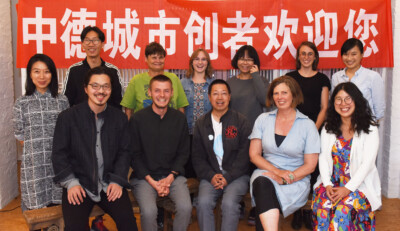
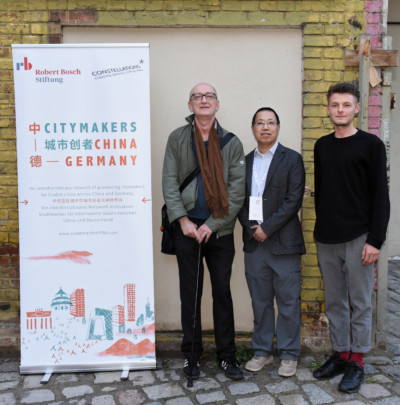
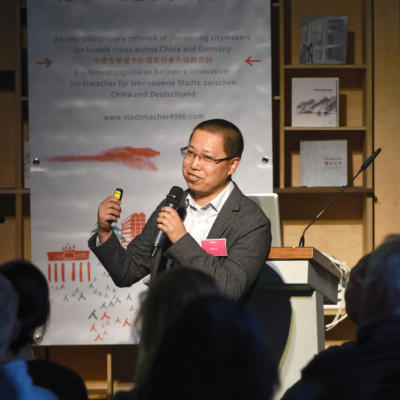
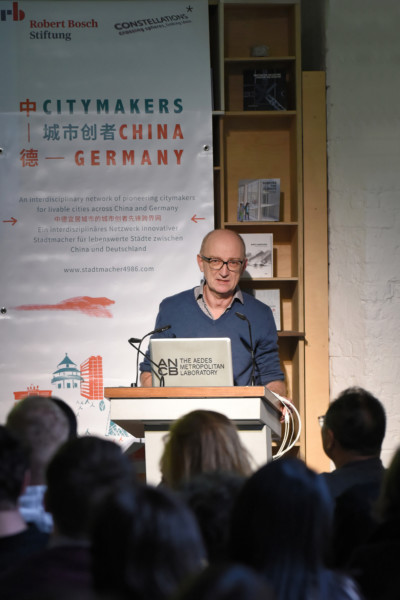
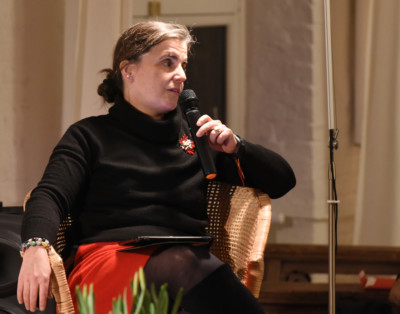
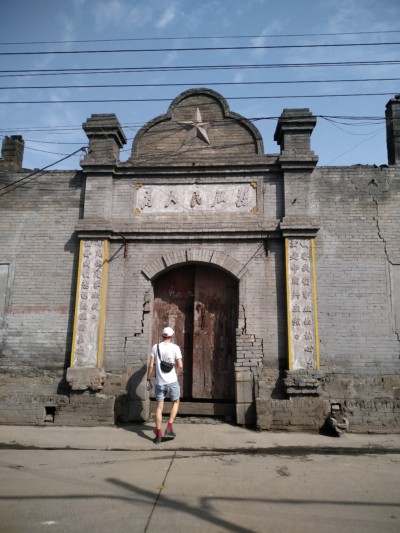
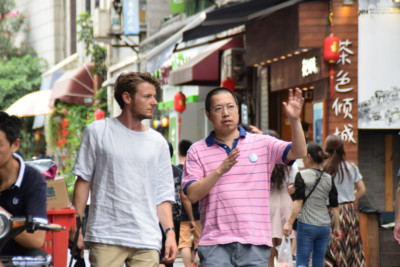
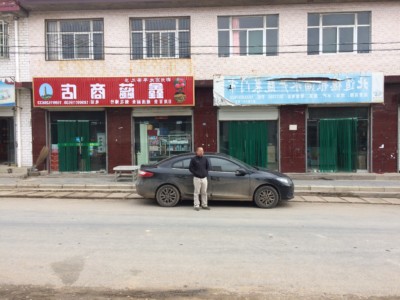

WHO
Contact
info@eduardkoegel.de

In September 2018, YANG Fan from CECP (China Endangered Culture Protectors) and Silvan Hagenbrock, urbanist and editor of CITYMAKERS, travelled together for 10 days from Xi’an to Taiyuan tracing cultural relics sites. Why go to all these places?

Cultural heritage in Wuhan is evidence of the past and a signpost to the future. It would be horrible to live in a city with no trace of the past, said YANG Fan, Founder of China Endangered Culture Protectors and Wuhan Heritage Walks.
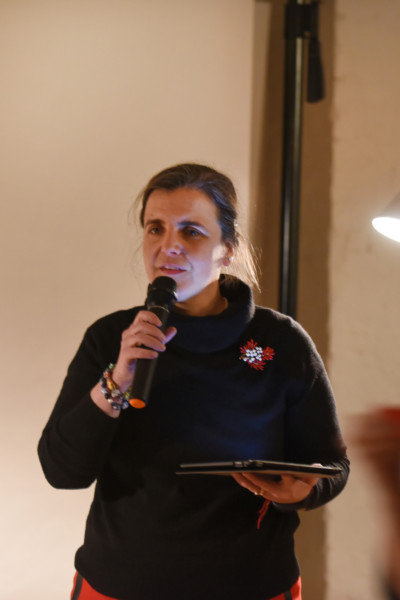
Dr. Ines Eben v. Racknitz is associate professor of Chinese history at Nanjing University. She has studied sinology, history, and literature in Germany, China and the United States. Her interest is in late Qing Chinese history, imperial culture, entangled Western and Chinese history, and also in the colonial history of treaty ports like Hankou.
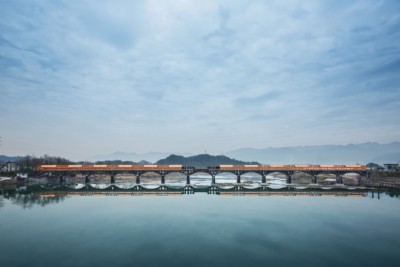
ZHANG Zhen und Kika YANG sprachen mit Dr. Eduard Kögel, Andreas Ruby und Erhard An-He Kinzelbach über ihre persönlichen China-Erfahrungenund über das dreitägige Symposium „Regions on the Rise: Culture and Architecture as Drivers for Rural Development” in Songyang, China.